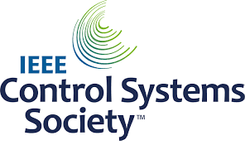Workshop 1: Frequency Domain Techniques for the Stability Analysis of Linear Time-Invariant Systems with Time Delays
Additional requirement: Attendees are encouraged to bring their own laptops with Matlab installed.
Abstract: This workshop presents techniques and tools to utilize to study the stability of linear time-invariant systems with time delays. The first half of the workshop will focus on background knowledge on the modeling of dynamical systems, how time delays arise in such systems, and what are some peculiarities one must pay attention to when studying such systems stability properties. In the second half of the workshop, we will cover an array of techniques, derive their mathematical foundations, and apply them as algorithms in Matlab to demonstrate their utility. The audience will be provided these algorithms as Matlab scripts and will be able to participate in coding these algorithms, together with the presenter.


